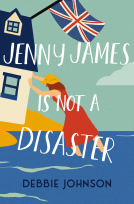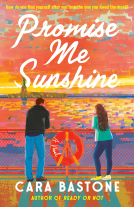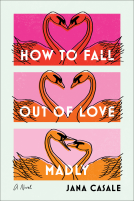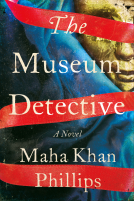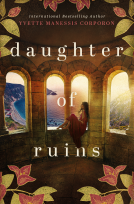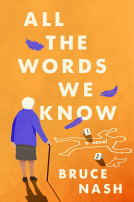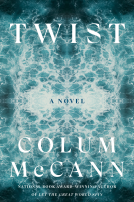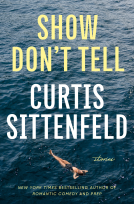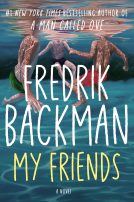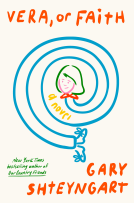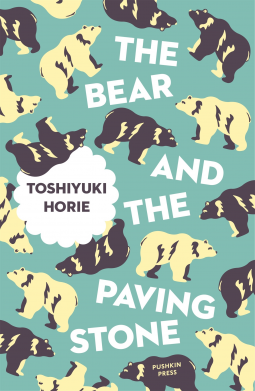
The Bear and the Paving Stone
by Toshiyuki Horie
This title was previously available on NetGalley and is now archived.
Send NetGalley books directly to your Kindle or Kindle app
1
To read on a Kindle or Kindle app, please add kindle@netgalley.com as an approved email address to receive files in your Amazon account. Click here for step-by-step instructions.
2
Also find your Kindle email address within your Amazon account, and enter it here.
Pub Date Jul 03 2018 | Archive Date Mar 08 2018
Talking about this book? Use #TheBearAndThePavingStone #NetGalley. More hashtag tips!
Description
A Japanese man, far from home, travels the countryside of Normandy with a friend - talking about war, literature, and everything in between. As his ideas of his life become more entangled with his personal writing, the pangs of his past and his half-forgotten memories overlap and threaten his peace.
Owing a debt to French writers from La Fontaine to Proust, the three fable-like tales in The Bear and the Paving Stone are stories of loss, memory and a longing to belong.
Available Editions
| EDITION | Other Format |
| ISBN | 9781782274377 |
| PRICE | $13.95 (USD) |
| PAGES | 160 |
Featured Reviews
 Kim R, Reviewer
Kim R, Reviewer
Once again Pushkin Press hits it out of the park with a stunningly beautiful translation.
Immediately after starting the title story in this book of three stories I was hooked. Stayed up late reading it and then had insomnia after because I couldn't stop thinking about the story. The title reference is a beautiful thing. Toshiyuki Horie has collected three gorgeous pieces of writing here that both seem to be disconnected but also closely connected at the same time, I'm not sure how that was managed exactly.
If you are a fan of translated works then I highly recommend seeking out this series from Pushkin.
 Joy W, Reviewer
Joy W, Reviewer
This work of Toshiyuki Horie is translated by Geraint Howells. Slim in volume (novella in length) and broken into three short dreamy stories. They have in common reminiscence, wistfulness and loss. The first story, which has the same name as the book, is the longest and delves into concentration camps, a blind child, art, an ancient monastery, a Fontaine fable and translation among other subjects. Regarding the concentration camps and the effect it has on the life of descendant Yann, it made me wonder about this new theory that's been developed on whether trauma can be passed down in the genes through generations. The contemplative and quirky relationship between the unlikely pair of Yann and our Japanese narrator is artfully portrayed, both in things said and not said. I also loved those passages that meditated and played on the meanings of French and Japanese words.
I have regrettably not read Proust's 'In Search Of Lost Time' but that would be an apt descriptor of these stories. Similarly, there is not much in the way of plot but in the hazy, dream-like sense of groping for a past cherished memory, there is an aching that we can all never return to that time and that person. Building a sandcastle by the sea (which the second story concentrates on) is an apt metaphor for the transience and constant changeability of life. But the losses do not translate into crushing despair but a kind of poignancy, which is a difficult balance to achieve.
One device I was not fond of was using a child or young person to ask inappropriate rude questions like, "Why aren't your eyes slanted" to our Japanese narrator, or to comment unfavorably on an uncle's girlfriend's body shape.
Thanks to Pushkin Press for providing a copy of this book for review via NetGalley.
These three short stories had the feeling of classics to me. I felt like I was reading a Fitzgerald story. The characters were well crafted, and there was a strategic rambling feeling that made you fall into the story. If you like the feel of those “classic” short stories of the 60s and 70s, you’ll love this. Also, this work was translated by Geraint Howells. It’s a bit disappointing that he’s only given credit at the very end of the book.
In the first story, a Japanese man meets up with his friend Yann who is from Normandy. They spend the day driving around to various locations and restaurants and discussing everything from war, to family history in Jewish concentration camps, to literature, to photography, to life and legacy.
The second story is about a man on a beach with his best friend’s sister and her young daughter. It’s about reflecting on life.
The third story was very short and followed a man visiting one of his friends and sneaking into a boarded off building.
 Kasa C, Reviewer
Kasa C, Reviewer
In the course of under 200 pages, Horie ties several threads together that would seem to have no connection, but such is the globalized world that a Japanese student studying in Paris has such a fertile mind that makes this possible. Our narrator is a translator with an unusual occupation - he transcribes portions of books for the benefit of publishers in order that they may determine whether or not to translate the entire work into Japanese. This book, which I am glad has passed this test, consists of three memory interludes experienced by our guide: he spends time in Normandy visiting a friend, musing on the Fables of Jean de La Fontaine as well as the history and development of the definitive French Dictionary by Émile Littré. Looking at the mysterious Mont St. Michele from an an unusual angle. That being the longest section. The two shorter installments are none the less equally memorable - one on the importance of impermanence as exemplified by sand castles, and the other, what does memory hold when in the ruins of a monastery again, in Normandy. If anything, I only wish there were more. Some of the endings are curiously abrupt, leaving me to wonder if there is more or if he feels he made his point and need say no more. This will definitely require a second reading.
 Harvee L, Reviewer
Harvee L, Reviewer
I enjoyed the author's descriptions of the Normandy coastline and countryside, the views of Mont St. Michel in Brittany, the stories of the old friends the narrator visits near these places.
The second story is the narrator's poignant look at a young girl as she grows up with the same passion - building sandcastles on the beach, at ages 6, 15, and in her 20s as a young mother.
The third story is humorous and another adventure in Normandy with the Japanese narrator, who like the author, is a scholar and teacher of French literature.
I found these stories interesting because of the author's unique point of view, his humor, and interest in the human condition.
Readers who liked this book also liked:
Yvette Manessis Corporon
General Fiction (Adult), Historical Fiction, Women's Fiction

